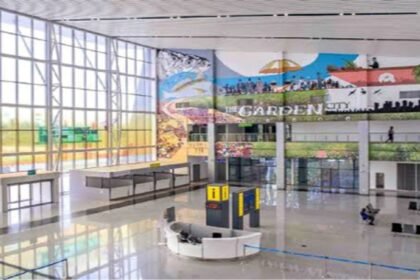Early on Saturday, 10,000 flight attendants at Air Canada went on strike, forcing the airline to halt all operations and leaving over 130,000 passengers stranded every day during the busiest travel season of the summer.
Shortly after its 72-hour strike notice expired, the cabin crew’s union, the Canadian Union of Public Employees (CUPE), confirmed the walkout started at 12:58 a.m. (0401 GMT).
Air Canada responded by announcing a complete network shutdown.
Typically, the airline operates roughly 700 flights daily to 180 cities across the globe. Over 100,000 passengers were impacted by the airline’s 623 flight cancellations by Friday night.
“Air Canada is strongly advising affected customers not to go to the airport,” the airline said in a statement, adding that it “deeply regrets the effect the strike is having on customers.”
Demands for pay increases and reimbursement for time spent on the ground during boarding and other tasks are at the center of the conflict. According to CUPE, attendants carry out necessary duties during these times but are not compensated until the plane takes off.
According to Rafael Gomez, director of the Centre for Industrial Relations at the University of Toronto, the union has been successful in drawing attention to the problem.
He stated prior to the strike that an ordinary traveler, who is unfamiliar with standard industry procedures, might believe, “I’m waiting to board the plane and there’s a flight attendant helping me, but they’re technically not being paid for that work.”
Gomez went on to say, “That’s a very good issue to highlight,” adding that improvements made by Air Canada staff members might have an effect on other carriers.
According to Air Canada’s most recent offer, which was unveiled on Thursday, senior flight attendants would make roughly C$87,000 ($65,000) a year by 2027. CUPE rejected calls for binding arbitration and rejected the proposal as “below inflation and below market value.”
The strike occurs as U.S. tariffs on the steel, aluminum, and automobile industries are putting a strain on Canada’s economy.
Company executives caution that stopping passenger and freight flights will make supply chain disruptions worse.
“At a time when Canada is dealing with unprecedented pressures on our critical economic supply chains, the disruption of national air passenger travel and cargo transport services would cause immediate and extensive harm to all Canadians,” the Business Council of Canada warned.
Despite the impasse, analysts think the strike might not last long.
“This is peak season,” Gomez said. “The airline does not want to lose hundreds of millions of dollars in revenue… They’re almost playing chicken with the flight attendants.”







